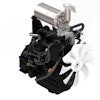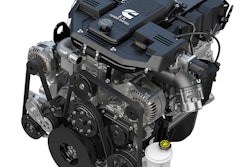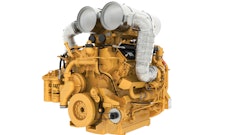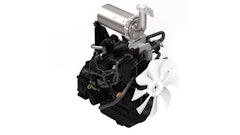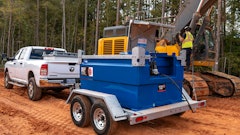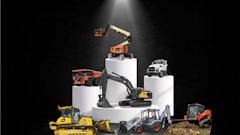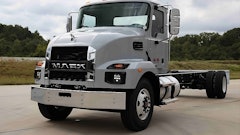Twenty-two trucking firms and individuals in 18 states filed a consolidated class-action lawsuit against Caterpillar in federal court. They charge that defects in the truck-engine emissions control system resulted in power losses and shutdowns that prevented or impeded their vehicles from transporting goods or passengers.
The involved C-13 and C-15 engines, collectively known as MY2007 Cat engines, were sold from 2007 through 2010.
Plaintiffs claim significant damages resulting from the defective engine exhaust emission system in terms of operational losses, diminished vehicle value, and the cost of replacing the Cat engines with other EPA 2007 Emission Standards-compliant heavy-duty, on-highway diesel engines.
"Many of these trucking and transportation operations are small businesses and family-owned shops that can't afford to have trucks break down due to defects," said Theodore Leopold, counsel representing the plaintiffs from Cohen Milstein Sellers & Toll PLLC. "Having their trucks out of commission created a financial hardship for these operators that Caterpillar has a responsibility to resolve, including the significant loss in value of the trucks due to the defects."
The consolidated complaint, filed under seal on Oct. 6, 2014, in the United States District Court for the District of New Jersey, against Peoria, Ill.-based Caterpillar, detailed a number of known product problems, including that the Cat engines' system was not designed, built and equipped to conform with exhaust emission regulation standards without causing repeated engine failures or shut-down commands that caused the vehicles to lose power and/or shut down.
These engines were designed with Cat's ACERT (Advanced Combustion Emissions Reduction Technology) systems to meet tougher emission restrictions implemented by the U.S. Environmental Protection Agency (EPA). The lawsuit alleges that while the ACERT design was marketed as a reliable, durable and fuel-efficient system, the engines are, in fact, defective and have been marketed and distributed under false pretenses.
"Each time their vehicle had problems, these plaintiffs repeatedly were told that an emissions warranty repair would correct the defect, when Cat knew, or should have known, that the exhaust emission system defect could not be corrected," said Leopold.
The same issues are also being litigated on behalf of defective C-13 Caterpillar bus engines that involve the same defective ACERT systems. The bus litigation is pending in the same New Jersey Federal Court.



